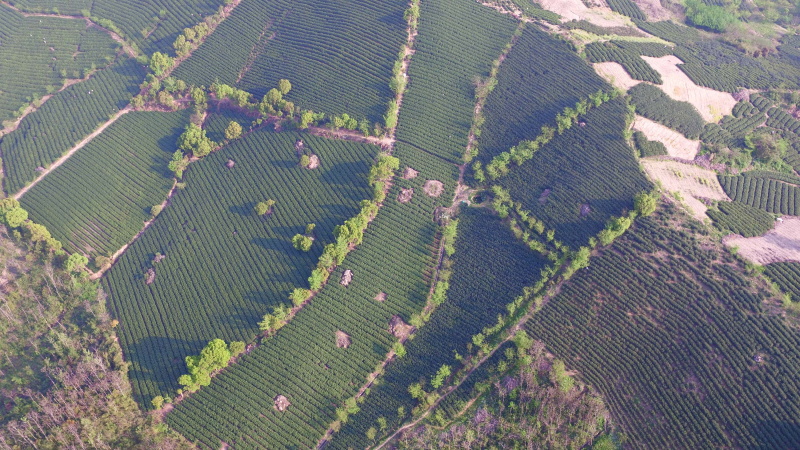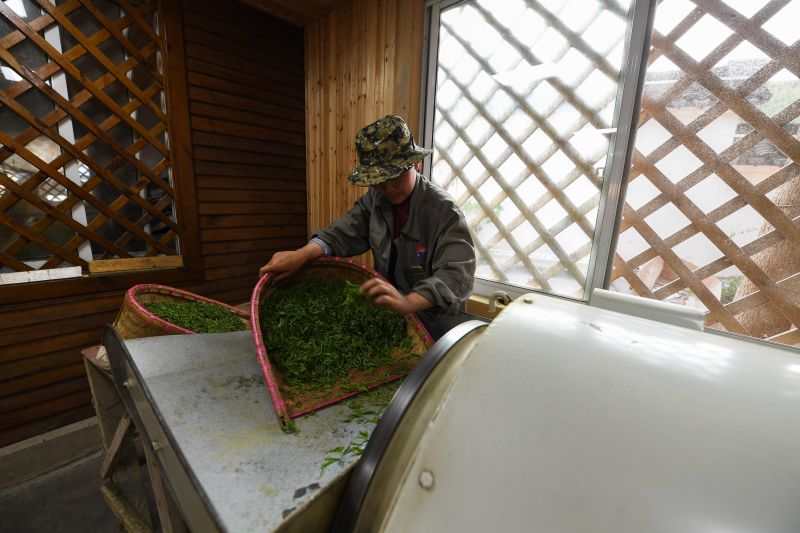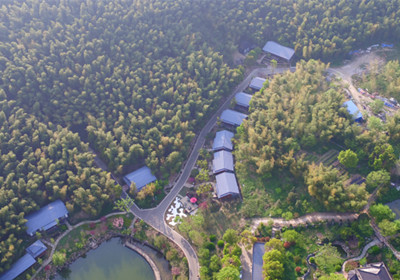
Acres of tea plantations in Baita village, Yixing, East China's Jiangsu province. [Photo/Xinhua]

A worker removes tea green after picking them from a tea plantation in Baita village, Yixing, East China's Jiangsu province on April 2, 2018. [Photo/Xinhua]
Situated on a hillside among bamboo groves, Baita village in Yixing, East China's Jiangsu province used to be extremely poor, but thanks to its two pillar industries -- high-yield agriculture and tourism -- the village has managed to shake off poverty.
Beautiful Village Construction, a strategy for rural revitalization proposed by the 19th National Congress of the Communist Party of China in October 2017, encourages rural areas to revitalize by harnessing their own competitive potential.
The village currently has eight cultivation demonstration bases, including Nantian bamboo and cherry blossoms, and has built a series of agricultural sightseeing gardens and cultural exhibition halls around Yunhu scenic area.
Investors have introduced new ideas and business models to the village. Last year, the village received nearly a million visitors, most of which were young people who enjoy rural life during their days off.
"Young people provide a steady stream of visitors to the village," said Ouyang Hua, Party secretary of Baita village, adding that the village has opened a Starbucks where young people can relax and appreciate the breathtaking scenery.
Ouyang insisted that the pristine environment and traditional customs be preserved when revitalizing rural areas, "Rural revitalization calls for meticulous planning and innovative thinking, with young people being the driving force behind development."
Baita village is now developing tea plantations and greenhouses for rural tourism, attracting visitors who wish to experience rural life during their holidays.






